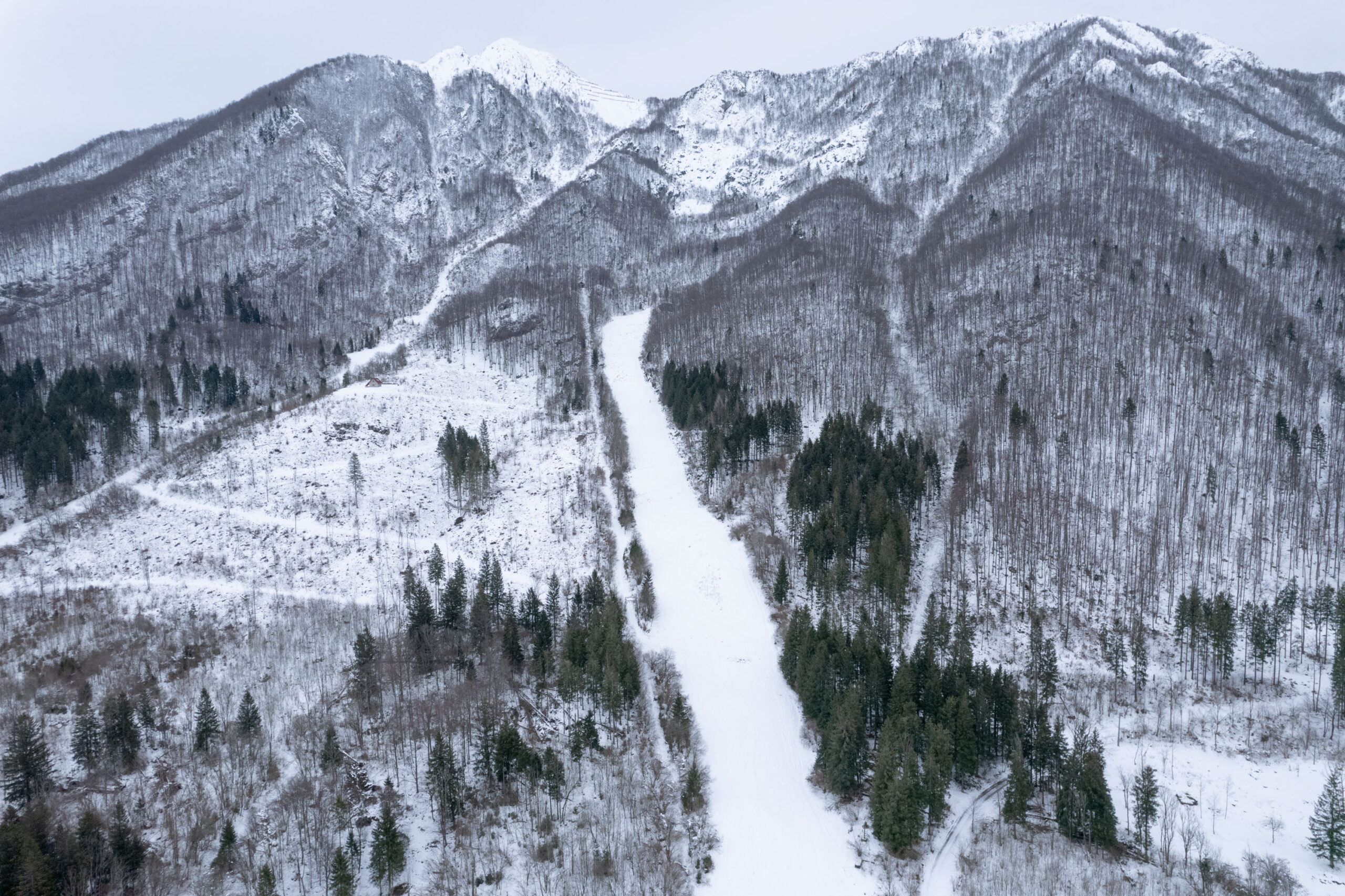
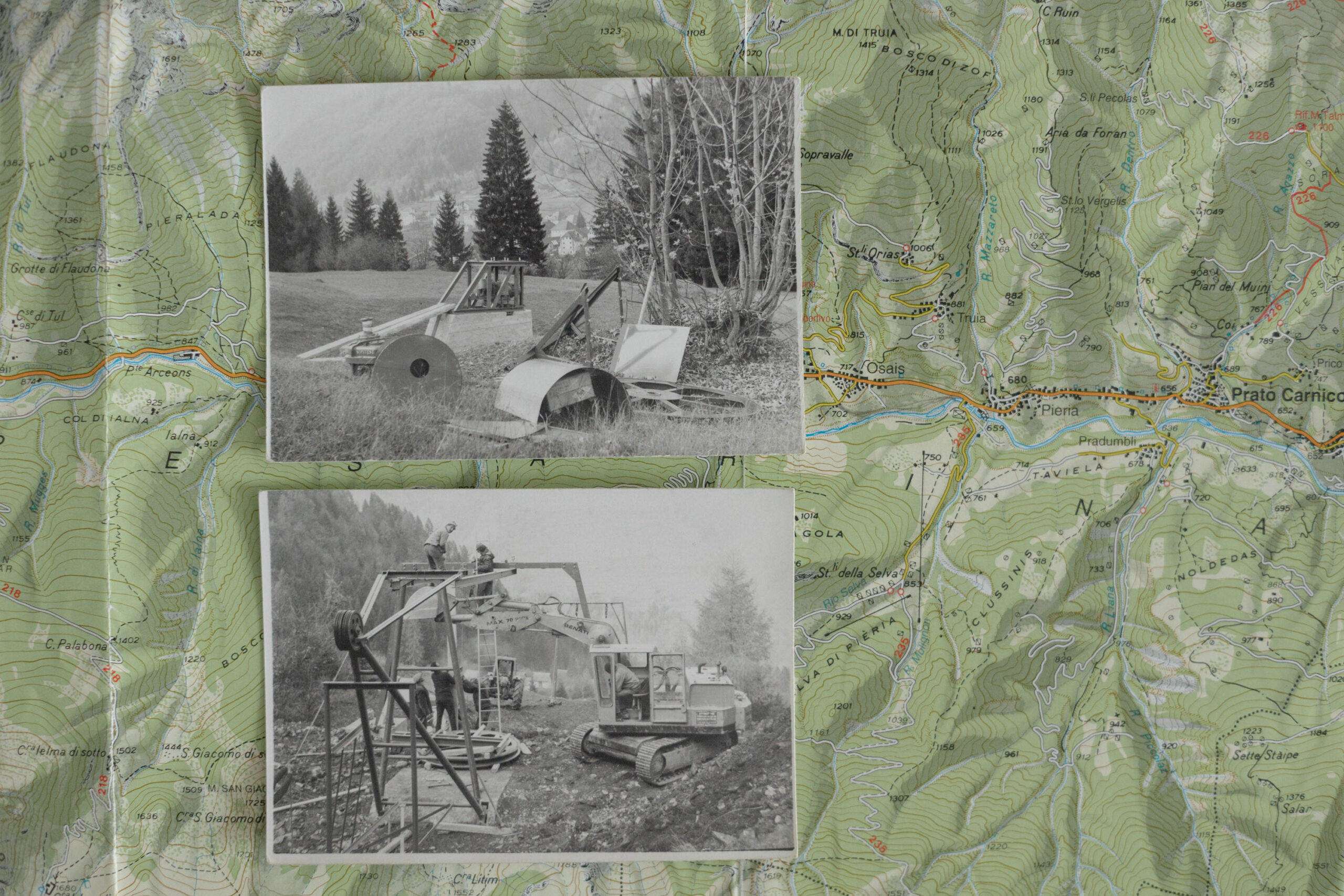
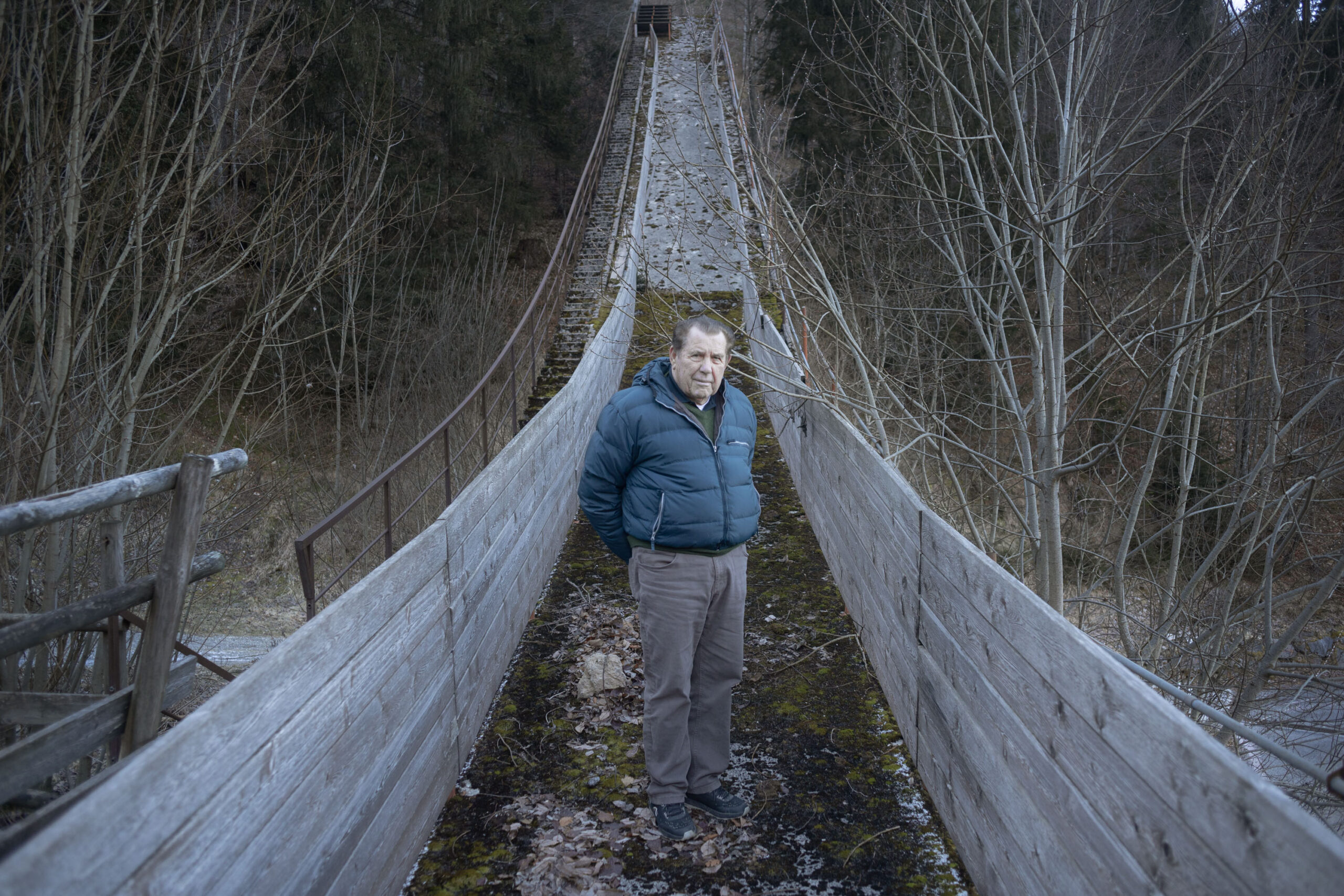
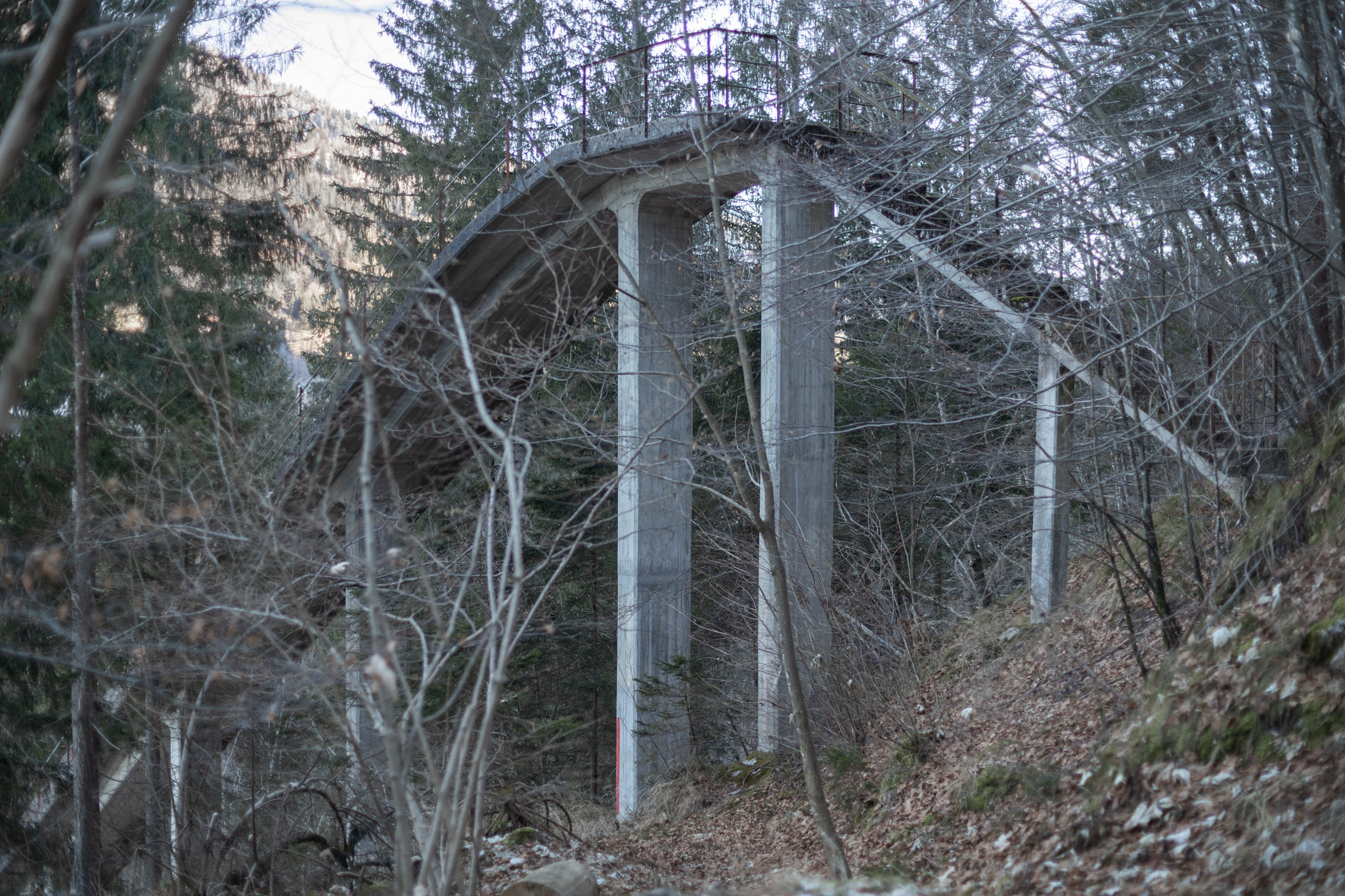
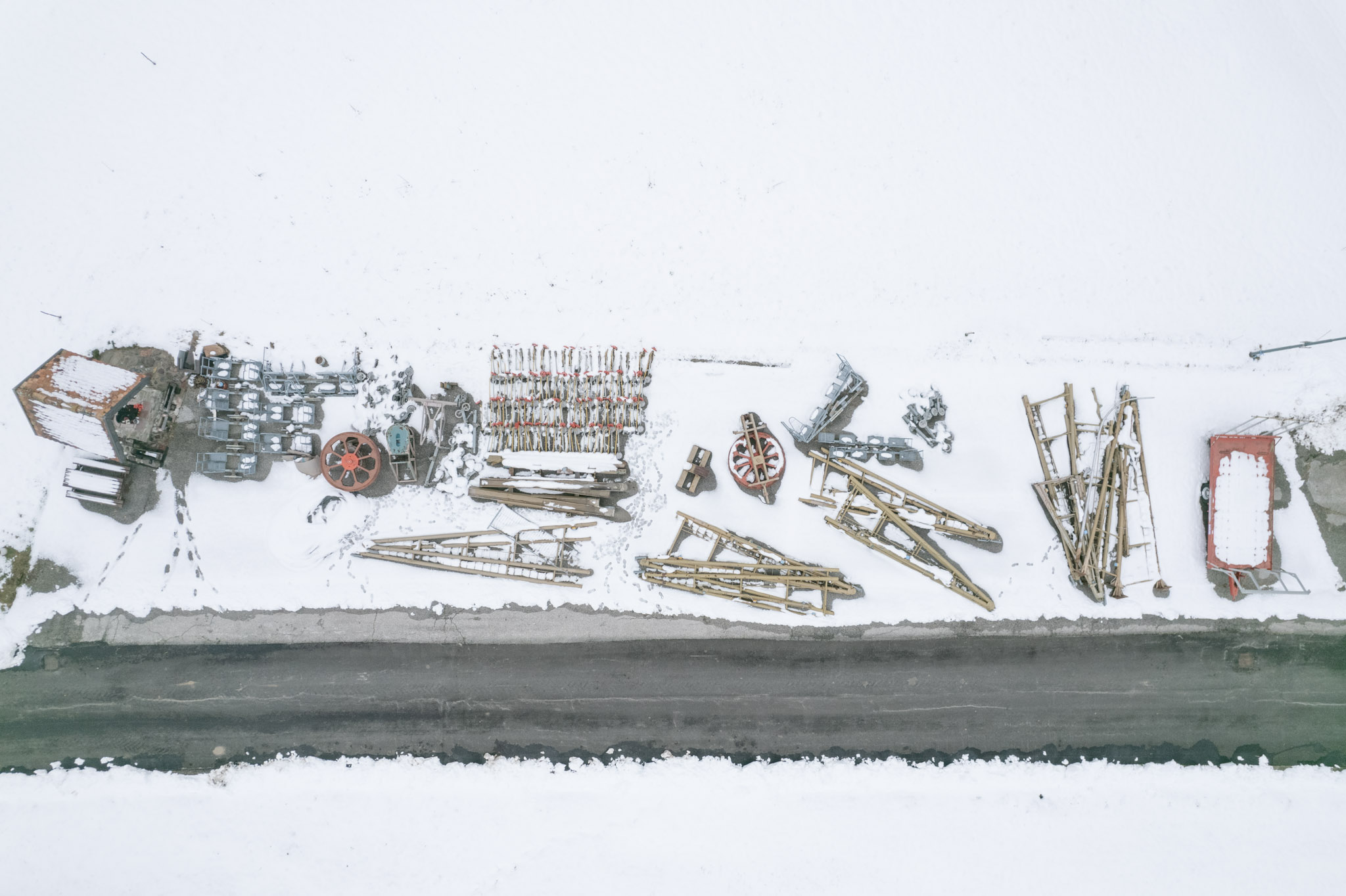
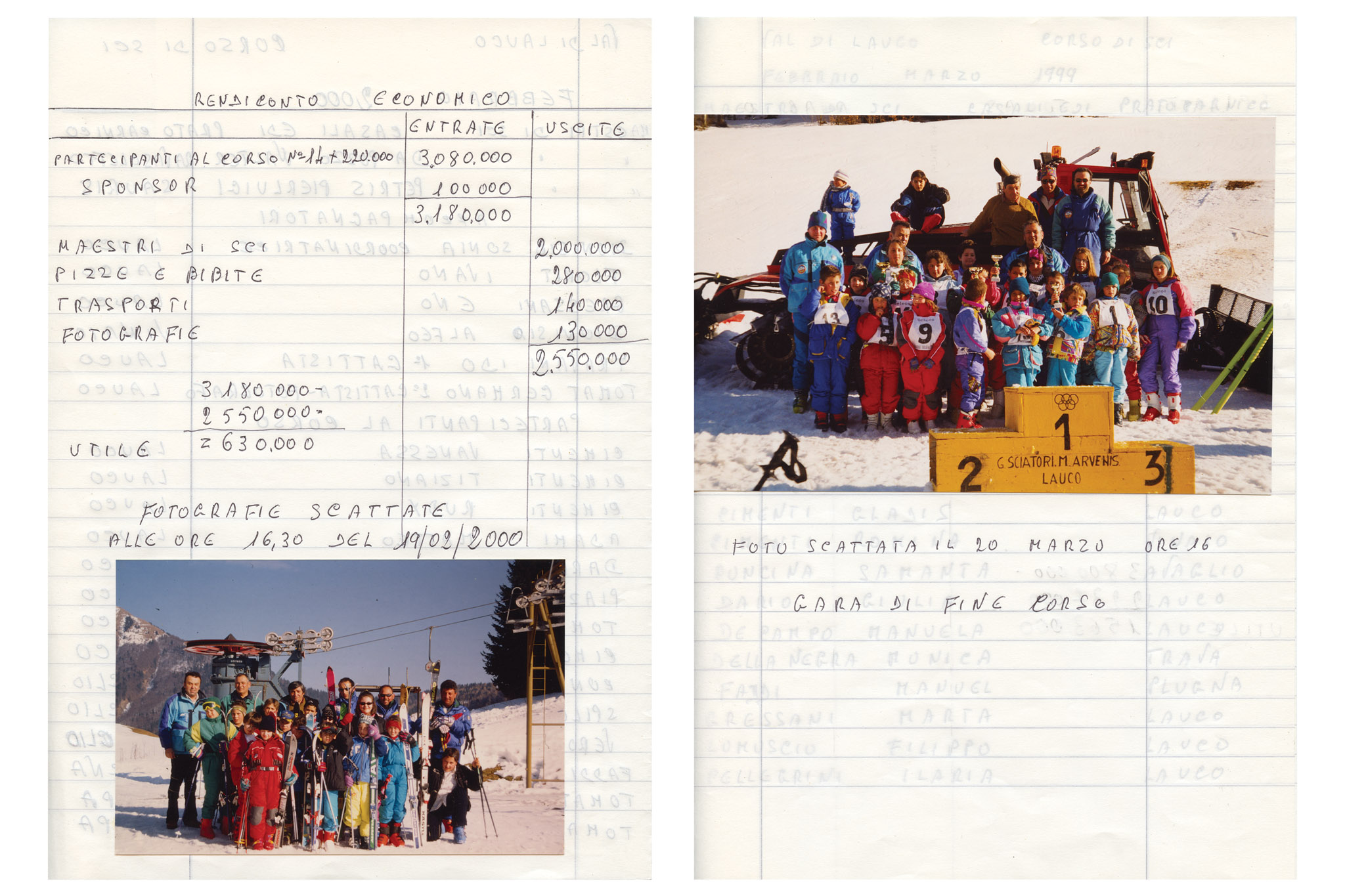
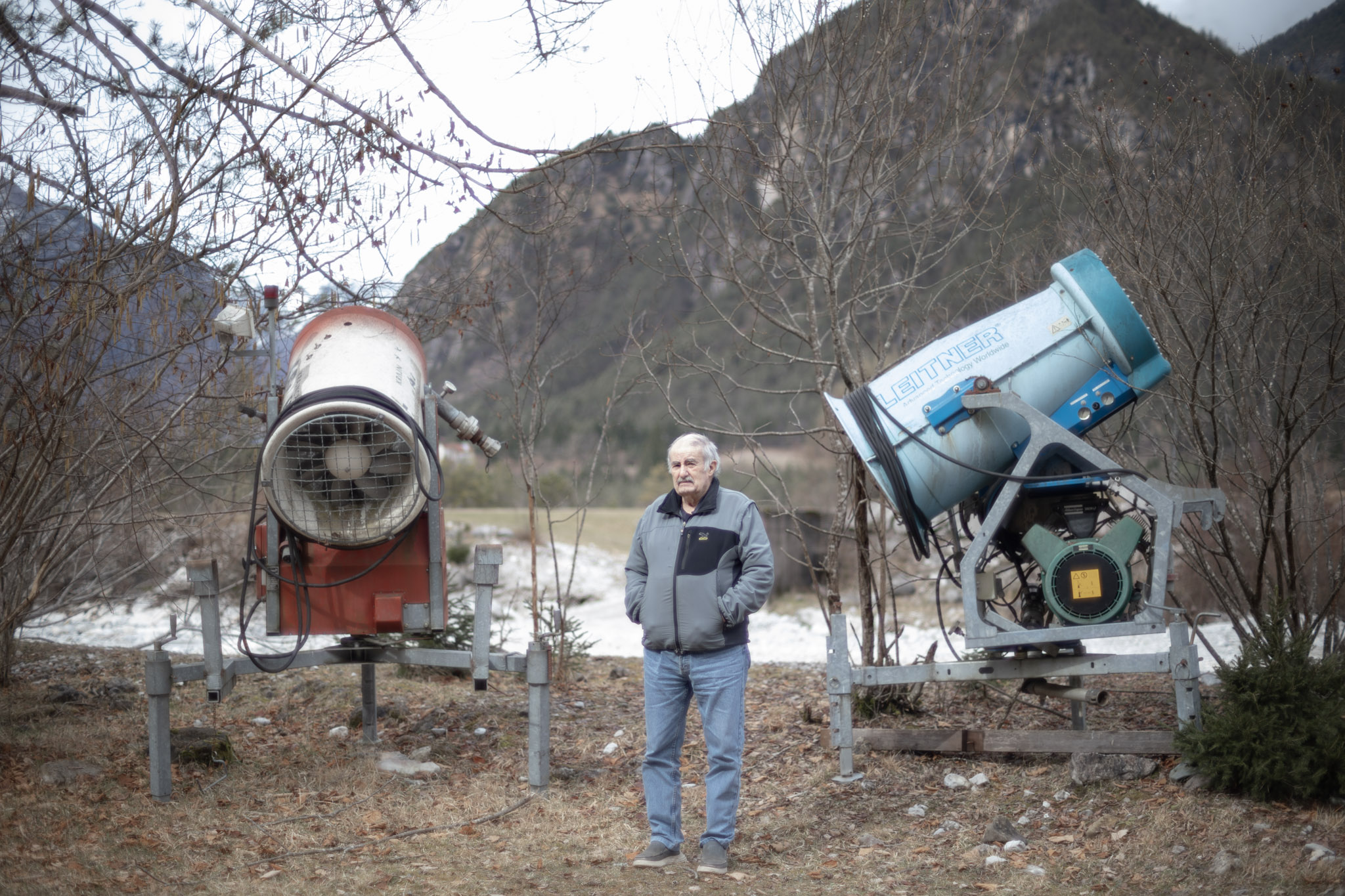

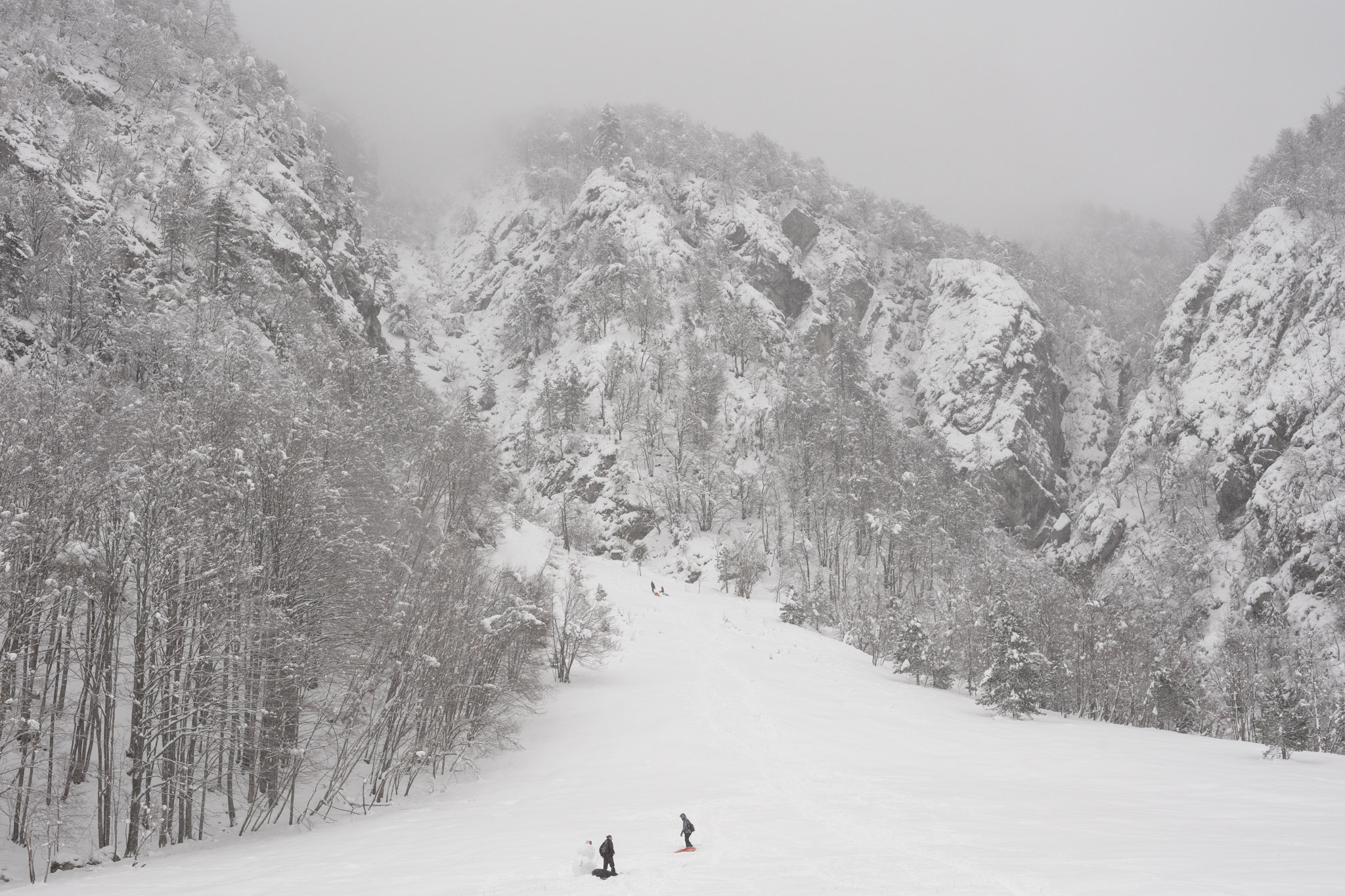
Once Upon Ski: Echoes of a Vanishing Winter
(2023 – On going)
Across the Alpine arc, many small ski lifts were built throughout the 20th century—not just as tourist attractions, but as places of local gathering and winter entertainment. In Friuli-Venezia Giulia alone, more than 25 ski areas once operated. This region, home to the lowest mountain ranges in the entire Alpine system, has always been more vulnerable to rising temperatures. It was here that the effects of climate change first began to impact small ski areas, leading to their gradual abandonment and removal. As the lifts disappeared, so did much of the social fabric and sense of identity tied to these mountains. This work is an anthropological investigation into the relationship between climate change and mountain depopulation.
This project speaks of my land, and of a world that has slowly disappeared—a world lived and loved by many people dear to me. I met residents who once ran ski rentals, built lifts, or grew up with winter as the center of community life. Their stories are filled with both pride and melancholy. By photographing these landscapes and collecting their memories, I wanted to preserve a chapter of Alpine history before it vanishes entirely.
Through documentary images, portraits, sound recordings, and archival material, Once Upon Ski captures the silence left behind: motionless lifts, empty parking lots, decaying signs—all remnants of a collective experience now fading. But this is not a nostalgic project. It reflects the fragility of an ecosystem—both environmental and human.
Today, 90% of ski resorts in Italy rely on artificial snow, and in Friuli-Venezia Giulia 15 reservoirs have been built to support its production. But the forecasts are clear: temperatures will continue to rise, snowfall will continue to decline, and the cost of maintaining low-altitude ski areas will become unsustainable.
In this context, Once Upon Ski becomes a call for awareness and dialogue. It invites us to reimagine the future of the mountains—not only through tourism, but through cultural heritage, local resilience, and ecological responsibility.